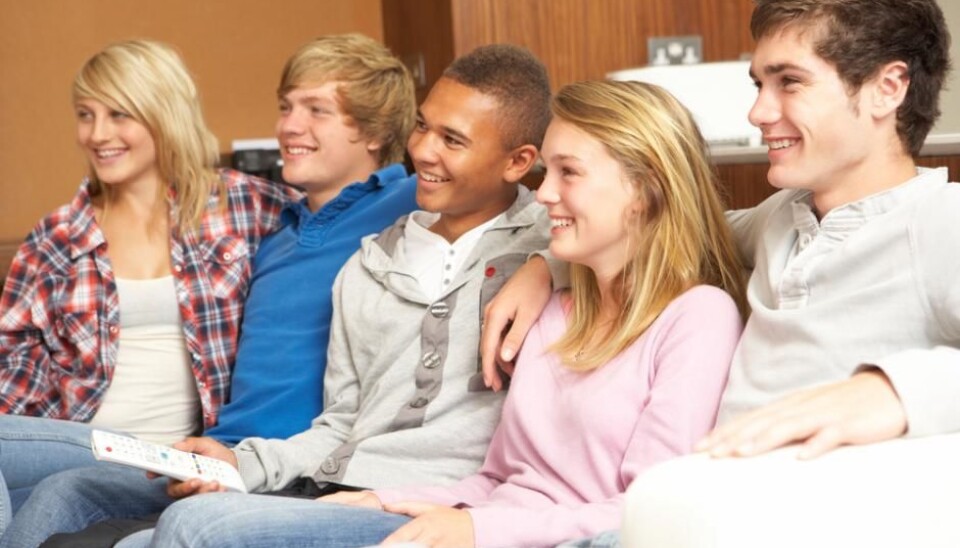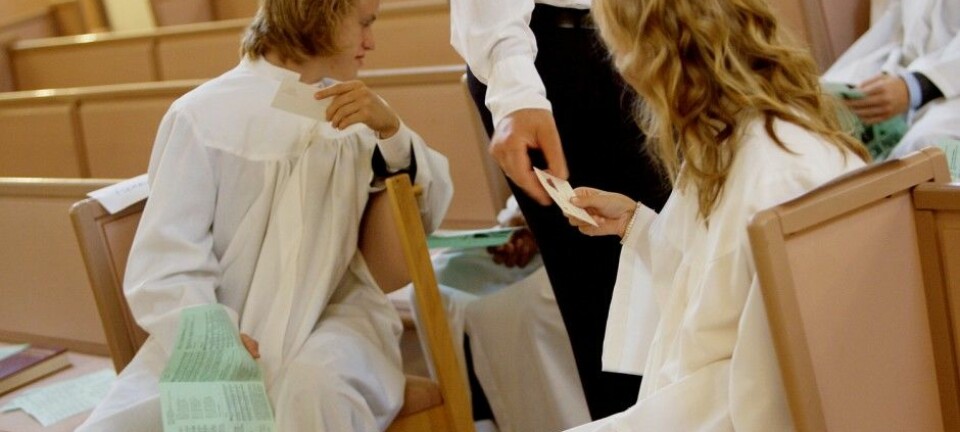
Watching sex on TV does not make teenagers sexually active
There is no correlation between what kids watch on TV and their sex life, shows new study. Instead, parents and friends may play a bigger role.
If you are worried about what you teenager is watching on TV, you can relax.
A new study has reviewed the results of 22 published scientific papers, comprising of more than 22,000 participants, and discovered that there is virtually no correlation between media habits and sexual behaviour.
“Even if we’d seen a correlation, it would be difficult to conclude whether media habits increased sexual activity or vice versa,” says co-author Rune Kristian Lundedal Nielsen, a Ph.D. student in media, technology, and computer games at the IT University Copenhagen, Denmark.
Parents and peers more influential than the media
Experiments in the early 1960s by American psychologist Albert Bandura demonstrated how young children copied an adult’s behaviour.
Bandura observed how children behaved towards a doll, after they themselves had seen an adult interact with it. If the adult hit the doll, Bandura observed that the children would do the same.
Bandura argued that we learn from so-called ‘positive role models’ and this is why many people believe that teenagers and young adults are more likely to engage in sexual activity after watching it on TV.
“If you watch [TV characters] have unprotected sex and get away with it, you might think that young adults will try to do the same. But the research doesn’t show this. Perhaps it’s because teenagers know very well that it’s fiction, but there may also be many other factors that play a role
“The encouraging message from our results is that the media is unlikely to thwart parental efforts to socialize children should parents take the initiative to talk directly to their children about sex,” says Lead-author Christopher Ferguson from Stetson University in Florida, USA, speaking to the Daily Mail.
Nielsen agrees, and suggests that friendship groups may have more influence over teenagers’ behaviour than the media.
Read More: This is why you have negative feelings after sex
Previous studies mistook behaviour for thoughts
Neilsen and his colleagues embarked on the study when they realised that there were two lines of thought, when it came to the media’s effect on sexual behaviour in young adults.
One track reported a link between the two, while the other said there was no link. So the researchers set out to discover which one was correct.
“Since there was an effect to measure, we decided to conduct a meta-data study to clarify the situation,” says Nielsen.
“And we discovered that many of the studies that reported an effect, were in reality not reporting sexual behaviour, but sexual thoughts. Instead, we looked at the studies that considered behaviour,” he says.
Read More: Mixed messages in Christian sex education
White Americans more effected than black Americans
One of the studies that the researchers looked at showed that when it comes to sex in the USA, black teenagers were less effected by the media than white teenagers.
More than 1,000 teenagers were interviewed about their media habits and their sexual history and activity.
Those who were exposed most to sexual content in the media between the ages of 12 and 14, were more likely to be sexually active at the age of 16. But strangely, the correlation only existed among white teenagers.
“It was really surprising but it could be due to the fact that there are many more white actors in the popular TV-series like Friends or Sex and the City,” says Nielsen.
The lack of correlation among black teenagers could simply be due to the fact that they identify less with the actors that they see on screen, he says.
The results are published in the scientific journal, Psychiatric Quarterly.
---------------
Read the Danish version of this article on Videnskab.dk
Translated by: Catherine Jex









